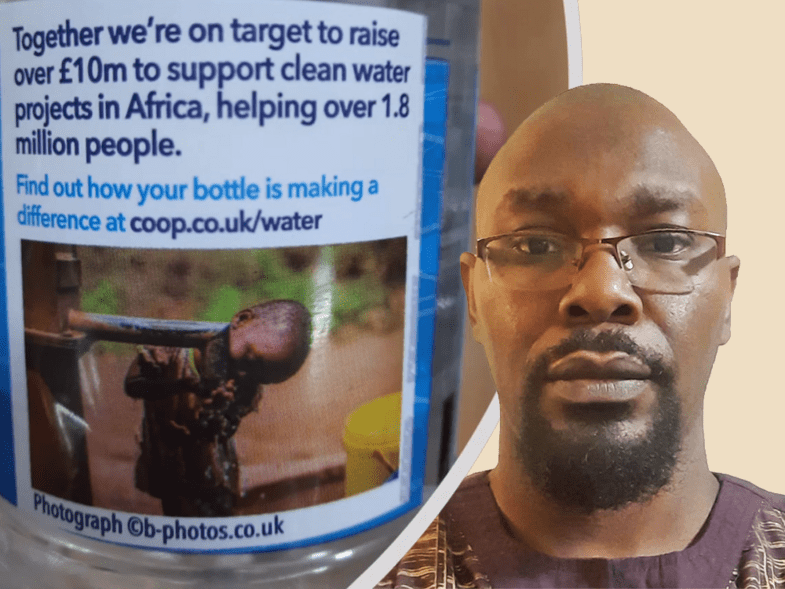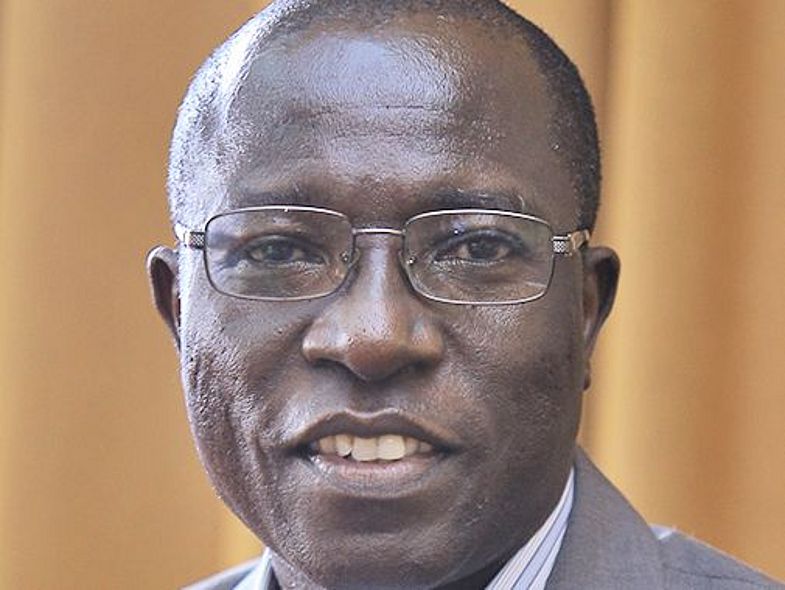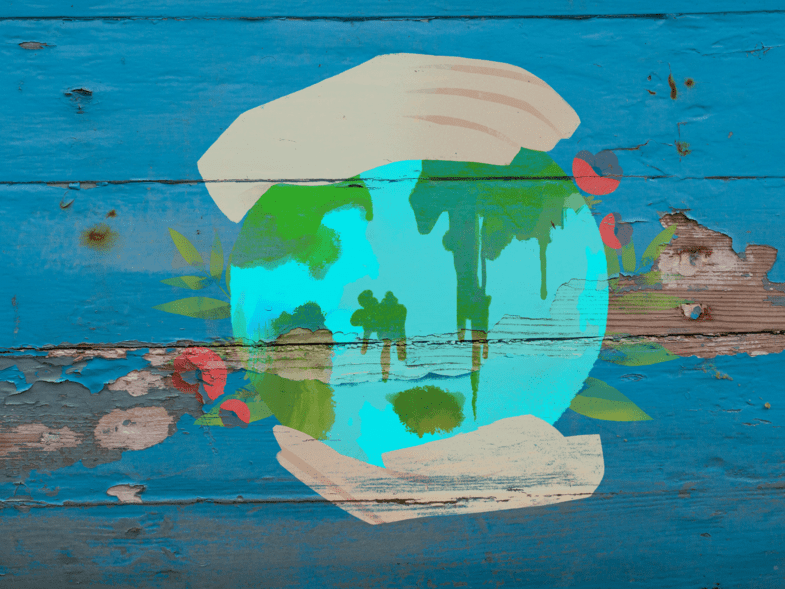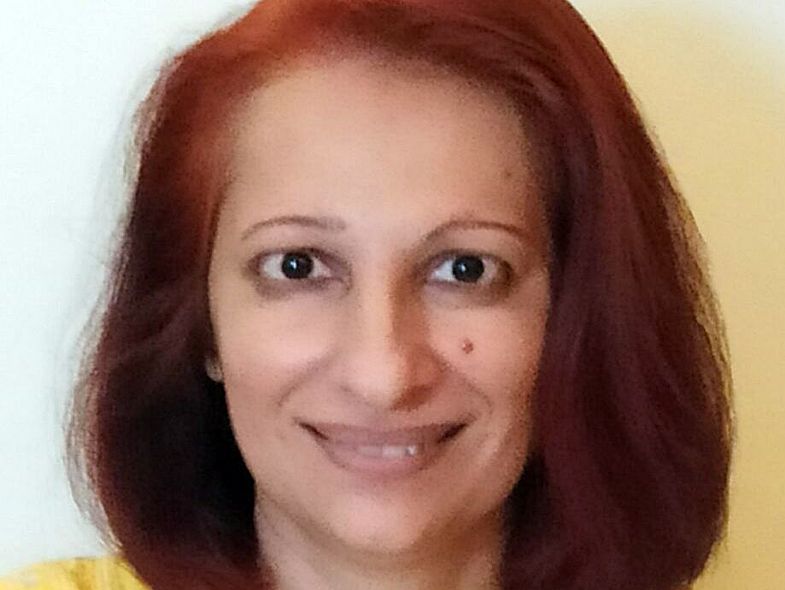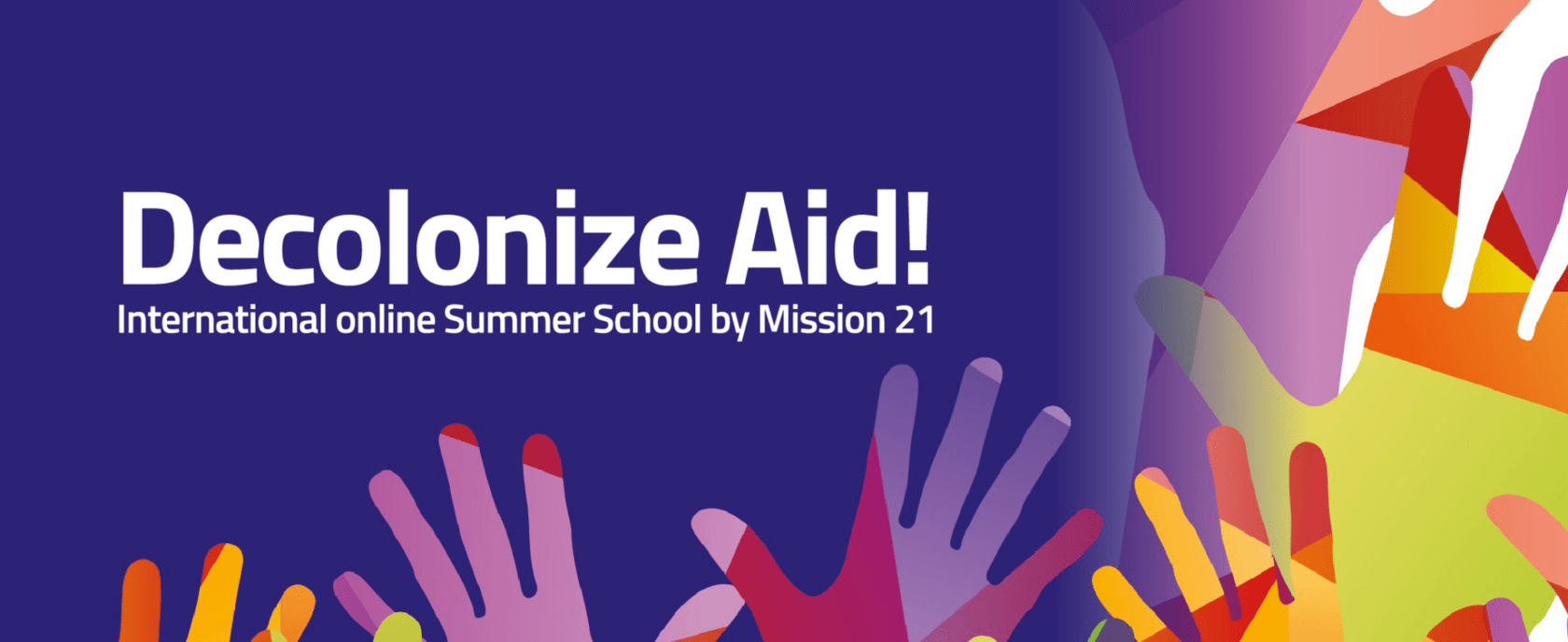
Decolonize Aid
Ein ehrlicher Blick auf das weiterhin bestehende Machtgefälle in der Entwicklungszusammenarbeit und eine gemeinsame Suche nach neuen Strategien für Zusammenarbeit auf Augenhöhe. Mit Partnerinstitutionen aus vier Kontinenten.
Zementiert die internationale Entwicklungszusammenarbeit koloniale Machtstrukturen? Hilft sie am Ende den Geber*innen mehr als den Empfänger*innen? Und wer beurteilt überhaupt, was ‹Entwicklung› bedeutet?
An der internationalen Online Summer School von Mission 21 diskutieren Teilnehmende mit Fachleuten und Interessierten aus vier Kontinenten, welche Strategien es für eine gleichberechtigtere Zusammenarbeit gibt.
Session 1
Entwicklungshilfe dekolonisieren?
Die langjährige pakistanische Expertin für Entwicklungszusammenarbeit Themrise Khan wendet sich gegen die Verwendung des Wortes Dekolonisierung im Zusammenhang mit Entwicklungshilfe mit dem Argument, dass nicht die Dekolonisierung der Hilfe wichtig ist, sondern das Ende der Hilfe insgesamt.
Donnerstag, 25. August 2022
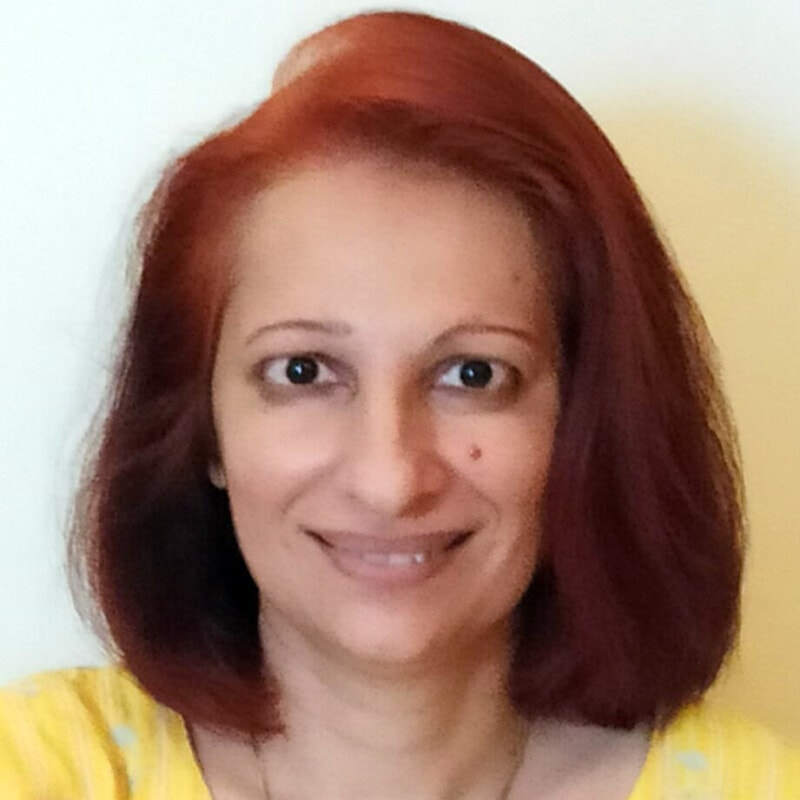
Themrise N. Khan, Pakistan
Unabhängige Analystin für Entwicklungshilfepolitik mit über 25 Jahren Erfahrung. ► Mehr zur Person
Präsentationsmaterial
Session 2
Entwicklungszusammenarbeit dekolonisieren: eine kritische Perspektive aus Lateinamerika
Überlegungen von indigenen Völkern, schwarzen Menschen, feministischen Bewegungen und kritischen Akademiker*innen in Lateinamerika, die von nicht-hegemonialen Beziehungen zwischen Völkern, Ländern und Kontexten ausgehen.
Donnerstag, 25. August 2022
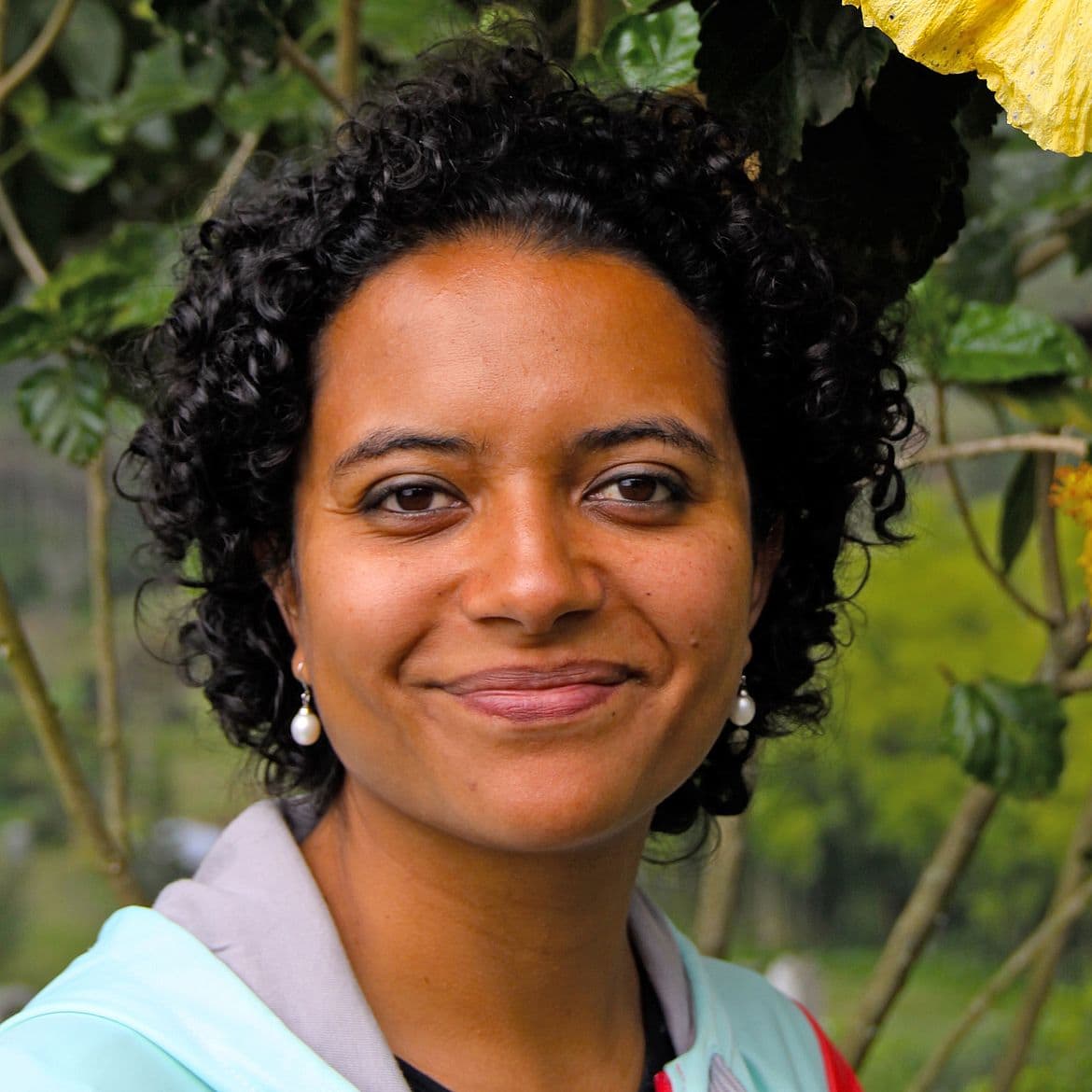
María Ximena González-Serrano, Colombia
Doktorandin im europäischen RIVERS-Projekt, das die Beziehung zwischen Menschenrechten und Wasser untersucht. ► Mehr zur Person
Präsentationsmaterial
Session 3
Dekolonialisierung des industriellen Komplexes der Entwicklungshilfe: Die Verwendung von Sprache und Lexikon
Die Dominanz des Englischen, Französischen oder Spanischen in der Entwicklungshilfe bedeutet, dass die Übersetzung in indigene Sprachen als Teil des Entwicklungsprozesses obligatorisch ist. Wie können wir eine integrativere Kommunikation ermöglichen, die weniger neokolonial, sexistisch und rassistisch ist?
Freitag, 26. August 2022
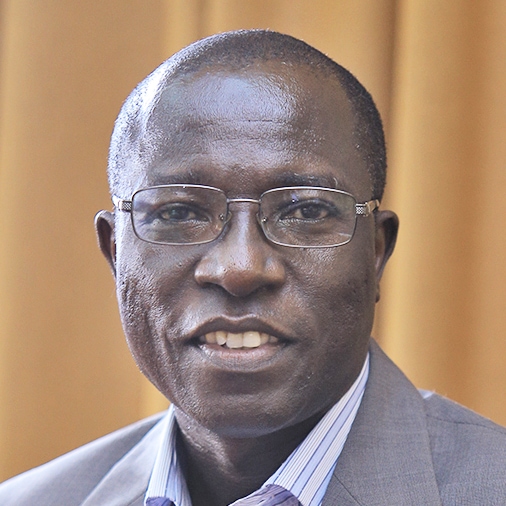
Dr. Moses Isooba, Uganda
Geschäftsführender Direktor des Uganda National NGO Forum (UNNGOF). ► Mehr zur Person
Präsentationsmaterial
Präsentationsmaterial
Session 4
Jenseits von Etiketten und Kulturkriegen: Gedanken zur Dekolonialisierung der Entwicklungszusammenarbeit
Die Entkolonialisierung der Bilder und der Sprache internationaler NGOs kann nicht nur die internationale Entwicklungsarbeit verbessern, sondern auch die Handlungsfähigkeit derjenigen in den Vordergrund rücken, die der Sektor zu unterstützen versucht.
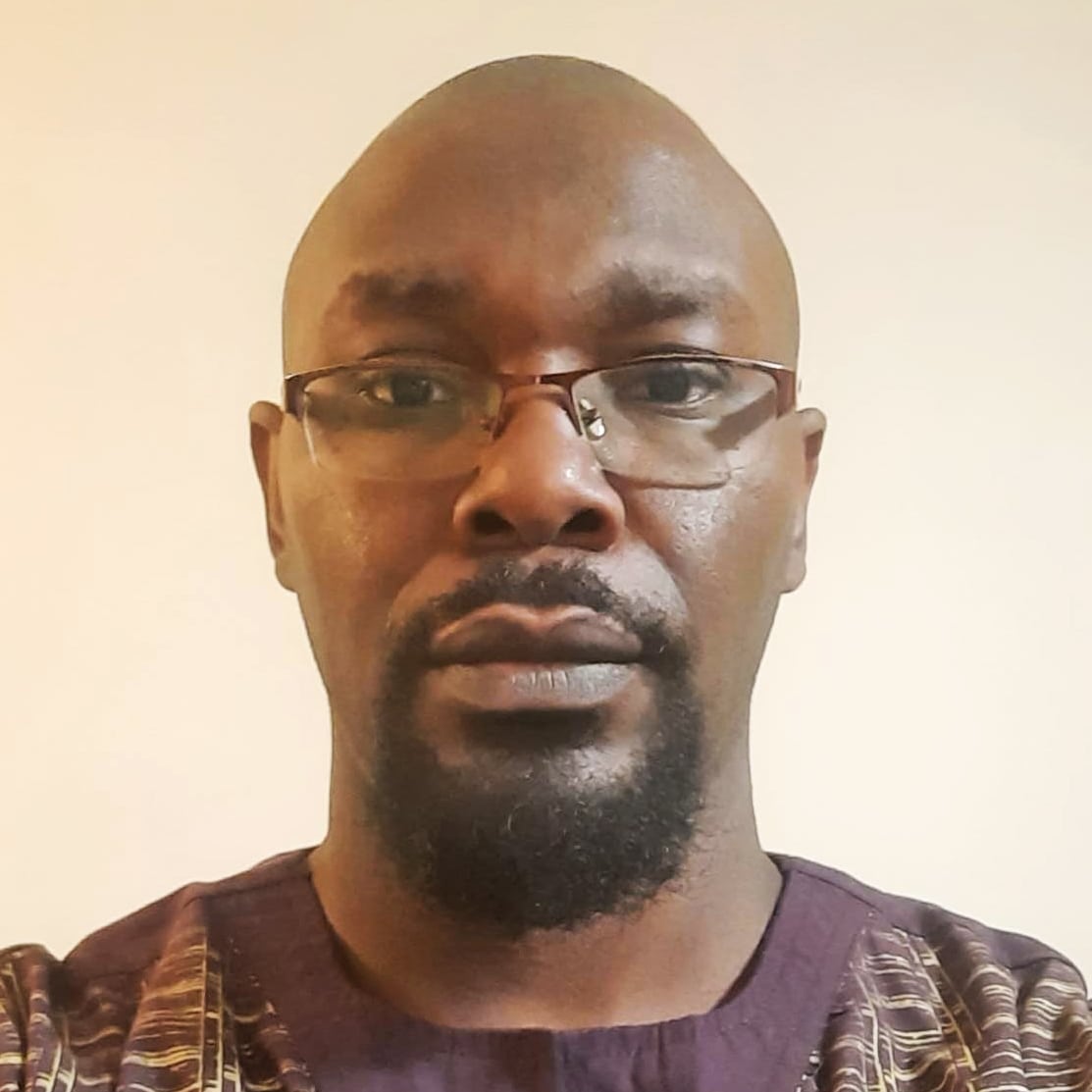
Muganzi Muhanguzi Isharaza, England und Uganda
Kommunikationsfachmann für internationale NGOs, Forscher und Doktorand für Kommunikation (Leeds).
► Mehr zur Person
Präsentationsmaterial
Berichte
Unübersichtlich, in Bewegung und widersprüchlich
Non-Profit-Organisationen können durch vereinfachte Darstellungen falsche Bilder und Vorstellungen vom Globalen Süden verstärken und weitertragen. Die Entwicklungszusammenarbeit darf sich darum ihrer Verantwortung nicht entziehen und muss ihre Sprache und Bildsprache dekolonisieren, sagt Muganzi Muhanguzi Isharaza aus Uganda/Grossbritannien im vierten Teil der Summer School 2022.
Summer School: «Ohne Veränderung der Sprache gibt es keine Veränderung des Systems»
Weltanschauungen aus Lateinamerika als Inspirationsquelle für die Entwicklungszusammenarbeit
«Wichtig ist die Frage: ist Hilfe nötig und nützlich?»
Muss man die Entwicklungshilfe entkolonialisieren? Um diese Frage dreht sich die diesjährige Summer School von Mission 21. Und gleich die erste Referentin zeigt: die Antworten sind unterschiedlich. Themrise Khan, pakistanische Expertin für Entwicklungspolitik, findet den Begriff der “Dekolonisation” nämlich unpassend – auch wenn ihre Haltung zur Entwicklungshilfe kritisch ist.
Radio Life Channel, 1. September 2022

Das Machtgefälle in der Entwicklungszusammenarbeit
«Mission 21» thematisierte dies in einer «Summer School».
